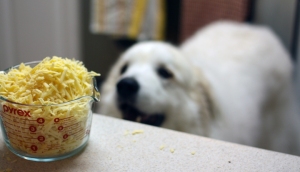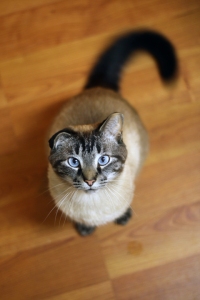I feel like leaving grad school somewhat regularly (it comes in waves). I’ll feel stuck and unhappy and cast around for other options. I nearly quit during the first year as I struggled with tragedy in Hubs’ family, the absence of irreplaceable college friends, a new city, and not feeling like I would ever find a lab to join. Then I found two labs that worked, and one that was just the right fit. That summer I struggled with my project in my chosen lab, but I was affirmed by my boss, who, realizing what a difficult time I was having, told me to “stop banging my head against a wall.” I definitely joined the best possible lab with the best possible boss. The next January, as I [finally] got into the swing of science, where you’re met with failure on just about every day that you work, a classmate who had entered the lab at the same time as I did chose to leave grad school for personal reasons. Her departure rocked my world, in one fell swoop I lost my closest friend in lab and became sure that I would finish my PhD. I knew with relative certainty that I wouldn’t be able to make the same choice she had made. And I haven’t. Last summer a course that I helped teach kept me going. Last week, inspired by the geographical closeness of an art school that sounded perfect for me and feeling stuck again, I emailed for more information. Today I received a reply that elicited feelings that made it clear that this path is not for me. I thought I was yearning to fill my life with creativity, but what I am truly yearning for is more balance.
Not much about being a grad student lends itself to feeling balanced. Work during more productive times in lab is unrelenting, lasting long hours and yielding little in the way of measurable progress. I feel guilty most of the time because I work in cycles: super productive phase followed by burn out then some slacking (repeat). I feel isolated because I don’t want to become a PI (principal investigator) or even do a postdoctoral fellowship. I don’t feel secure enough in the science world to be who I really feel like I am, which is a creative, spiritual person who really enjoys talking and thinking and learning about science but can’t fathom how anyone would want to be a part of a world that seems to ignore everything but scientific productivity. I don’t want to ever put my career ahead of my family and my happiness, and I feel alone amongst my scientific peers. I wish that the system was different and scientists could be accepted as whole people, with passions equally as valuable as the work that we do.
The economic structure of academic science is unlikely to allow a change in the system anytime soon. In order to get jobs, you need publications. In order to get publications, you often have to work long hours at the expense of other commitments in your life. In order to keep jobs, you need funding, which you can get only if you publish. It’s a cycle that obviously self-perpetuates. And it works so well for some people. My boss has succeeded, through considerable talent, hard work, and extreme organization, to balance his life with his family and his lab remarkably well, but his wife worked in a job that allowed her to be home a lot with their kids. And it feels so unfair that because I want to raise my [future] children myself and want balance in my life that there is not an option for me in the scientific world that doesn’t feel second rate, that it will be looked down upon by everyone who sees me as a scientist now. I have probably been less successful in my work because I feel this unfairness so heavily, but I think it’s the time to let go.
The scientific community as a whole may continue to scoff at people who value other things over their scientific work. I can make a choice to let it weigh on me or a choice not to make decisions based on other people. Hubs and I have talked at length about our plans for our future happiness. He, our families, and our friends are proud of me no matter what. Though I feel stuck now, I won’t be stuck forever. I’m here now because I love science teaching and mentoring (as I am often reminded). Grad school will eventually end, and then I can get to a new place where I can teach and mentor and where I feel valued as a whole person and feel balance in my life.



